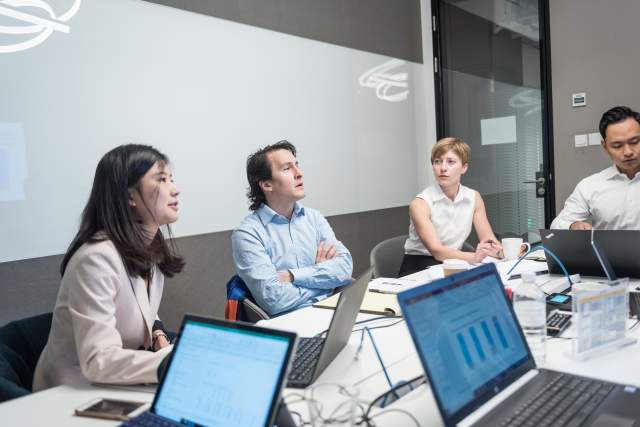The Association of Croatian American Professionals (ACAP)
When the Association of Croatian American Professionals (ACAP) decided it wanted to launch an evidence-based integrated wellness tourism program, it tapped a team of Tuck students to help them map out an appropriate strategy. ACAP—a member-driven nonprofit based in California consisting of 15 chapters across the U.S.—hoped the initiative would help establish Croatia as a go-to destination for health and wellness.
The team—comprised of T’20s Linda Horner, Nirlipta Panda, Tanushree Podder and Zach Castle, as well as Owen Ritz D’21—visited Dubrovnik, Zagreb, Rijeka, Vukovar, and additional cities in Croatia to conduct qualitative interviews with professionals from organizations that included public and private medical clinics, wellness centers, hotels and health tourism startups. They surveyed more than 100 customers, sifted through different data points to identify certain themes and identified important questions for ACAP to answer, such as: Does Croatia have the technology and infrastructure to roll out such a program?
“It was exciting to be creating an entirely new product,” said Horner, who grew up in Uganda and has an interest in global health. “The complexity of the project was very interesting to me. It was an opportunity to build something from nothing.”
The team recommended that ACAP roll out three product offerings—a rejuvenating health retreat, a personalized lifestyle medicine program and a rehabilitation paradise—believing that the programs would help create positive lifestyle interventions while connecting participants to their roots in Croatia.
Tuck demonstrated the value of an objective assessment by professionals with diverse backgrounds and skillsets. The strategic recommendations made by the Tuck team will certainly provide us with a competitive advantage.
Dr. Jeana Havidich, a member of ACAP based at Dartmouth-Hitchcock Medical Center, said that the students exceeded her expectations—they came prepared to Croatia and were really able to hit the ground running right away. “The first thing that impressed me was their ability to understand our situation,” Havidich says. “The Tuck team delivered an impressive amount of research, including a helpful competitor analysis. In the final report, not only were our questions answered, but they addressed additional points that may contribute to the success of our project.”
ACAP plans to implement the students’ recommendations and establish programs in Croatia within the next two years. Bringing key stakeholders together—from Croatian and US Governments to the private health care sector—enabled the ACAP Medical Tourism Task Force to start meaningful discussions. “Tuck demonstrated the value of an objective assessment by professionals with diverse backgrounds and skillsets,” says Havidich. “The strategic recommendations made by the Tuck team will certainly provide us with a competitive advantage.” In future, ACAP is interested in collaborating with Tuck on other programs, including establishing a much needed cancer center in Eastern Europe.
If your organization has a global strategy challenge that could use MBA insights and actionable recommendations, OnSite is offering consulting opportunities this summer and fall. Please contact Kerry Laufer, director of OnSite, for more information on how to become a client.

